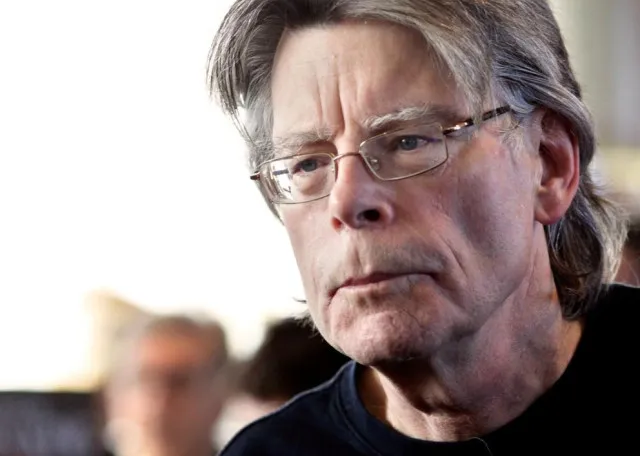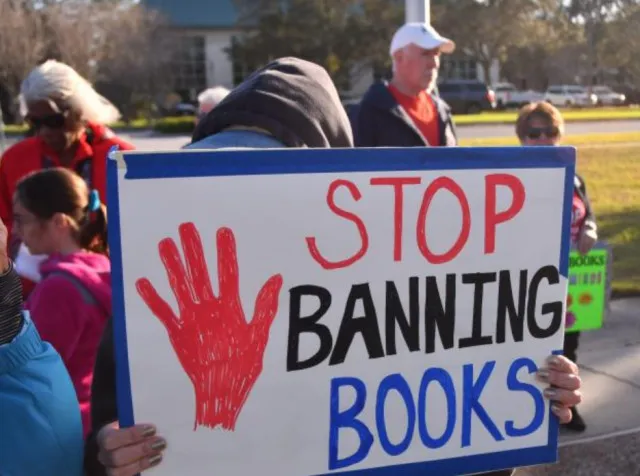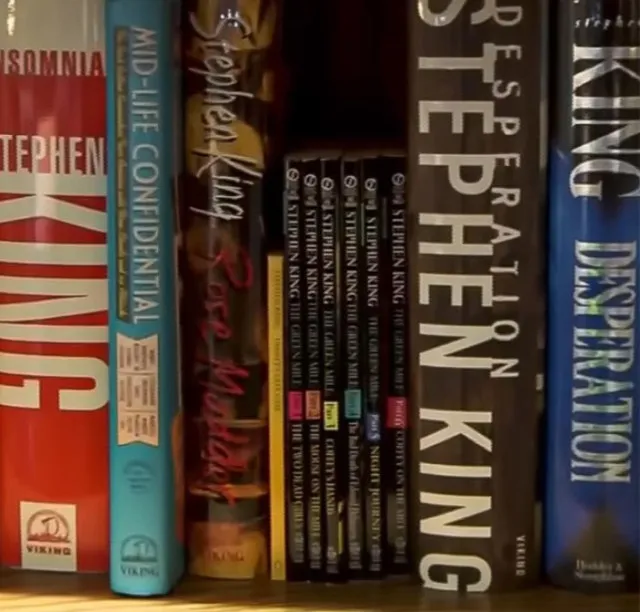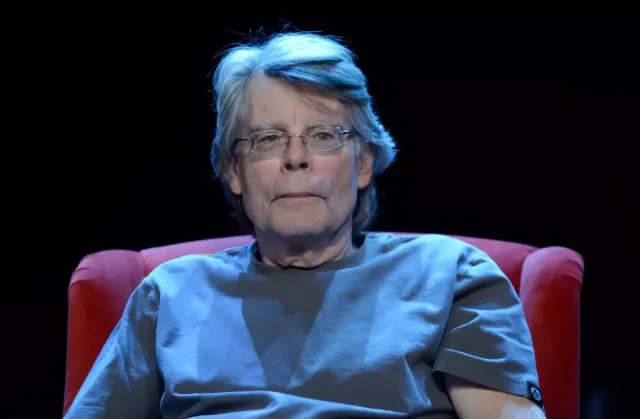Stephen King has reacted strongly after 23 of his books were banned by the state, defending the importance of literary freedom.
Famous author Stephen King has recently voiced his outrage after learning that the state of Florida has banned 23 of his books from schools.
This decision stems from a controversial law that allows parents to request the removal of books deemed inappropriate.
The legislation has drawn significant criticism and has led to a wave of book bans across the state.

Florida’s book ban also implemented on books of Stephen King
The law, signed by Governor Ron DeSantis in 2022, targets literature with references to sexuality or sexual conduct.
It includes books that discuss these topics, even if they are not explicitly pornographic.
As a result, school libraries have removed many classic and contemporary works.
King’s titles, including popular novels such as *Carrie* and *The Gunslinger*, are among the banned books.

On August 29, Penguin Random House and other publishers, along with the Authors Guild, filed a lawsuit against Florida.
They are challenging a law that allows parents to request the removal of certain books from school libraries.
This legislation, signed by Governor Ron DeSantis in 2022, targets books that contain references to sexuality, even if not explicitly pornographic.
The law mandates that sex education must teach that sex is binary and determined by reproductive function at birth.
The law also lets anyone object to books showing sexual conduct in classrooms or libraries.
These books can be removed while an investigation is conducted.

It explains: “The list of banned books includes classics such as Brave New World by Aldous Huxley, A Tale of Two Cities by Charles Dickens, For Whom the Bell Tolls by Ernest Hemingway, and The Adventures of Tom Sawyer by Mark Twain,
as well as contemporary novels by bestselling authors such as Margaret Atwood, Judy Blume, and Stephen King.
Since the law took effect in July 2023, numerous titles, including works by Stephen King, have been banned.
HarperCollins pointed out that hundreds of titles have been affected by the law.
They raised concerns about censorship and how it impacts students’ access to diverse literature.
Stephen King speaks out after the state bans 23 of his books from schools
In response to the news, King took to Twitter to express his disbelief.
He simply stated: “Florida has banned 23 of my books. What the f**k?”
His open reaction shows how many authors feel frustrated with censorship.
They are upset when important books are banned.

Other authors also spoke out against
Publishers like Penguin Random House and HarperCollins, along with the Authors Guild, have sued the state.
They argue that the law violates the freedom to read and diminishes the educational value of books.
They contend that such bans prevent students from accessing a wide range of human experiences and ideas.
“As publishers dedicated to protecting freedom of expression and the right to read, the rise in book bans across the country continues to demand our collective action.

“Fighting unconstitutional legislation in Florida and across the country is an urgent priority.
We are unwavering in our support for educators, librarians, students, authors, and readers,
everyone deserves access to books and stories that show different perspectives and viewpoints.
“Students need access to books that reflect a wide range of human experiences to learn and grow.
“It’s imperative for the education of our young people that teachers and librarians be allowed to use their professional expertise to match our authors’ books to the right reader at the right time in their life,” the authors issued a shared statement.

Authorities addressed Florida’s book ban
However, supporters of the ban argue that they are protecting children from material they deem inappropriate.
This has caused tension between advocates of free expression and those supporting parental control over reading materials.
Sydney Booker, a spokesperson for the Department of Education, commented: “There are no books banned in Florida.
Sexually explicit material and instruction are not suitable for schools.”